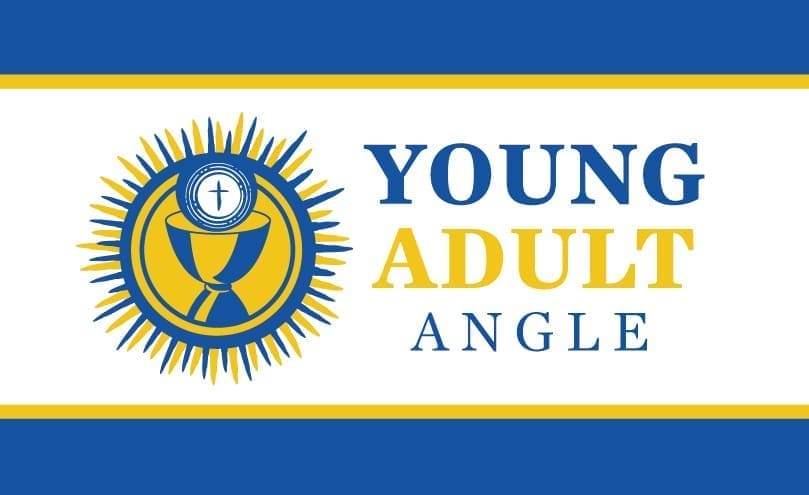
Sharing the Good News
By TEO HARRISSON, Special to The Bulletin | Published June 10, 2022
We can all recall moments in our lives when the things that once brought us joy and accomplishment begin to fade in color. For some, this incompleteness occurs in times of success and surrounded by friends, for others in moments of suffering and solitude.

Teo Harrisson
At this very moment, each of us has family or friends yearning for that emptiness to be filled. Catholic author Christopher West cleverly compares this emptiness not to that of a box but to that of a stomach—an emptiness that knows it wants something, not anything. This desire that comes from the heart is desperate for union and destined for love. But, how can we gift that love to others and what prepares our own hearts to share it?
“We love because He first loved us.” (1 Jn 4:19)
It might be hard for anyone to imagine what the church means when it says “God is Love.” God is commonly pictured as a loving father or an old man with a long white beard, when in reality God is not a being. Scholastic philosophy uses the term actus purus, or pure act, to describe his nature in and through the universe. As an example, it is not us who loves but God who loves through us.
Furthermore, our love for God cannot be contained in our hearts since he is pure actuality and so his love bursts forth. Our desire to share that love with others becomes our natural response to the nature of his being in us. Sharing Christ with others, then, is not a command but a symptom of our love for him.
Listen to St. Augustine’s take on God’s life in us, “I would not be, O my God, I would not exist at all, if you were not in me—or rather, I would not exist if I were not in you.”
Everyone knows that actions of love speak louder than words. Naturally, we tend to gravitate toward people who radiate joy and live a life worthy of admiration. But, with six Catholics leaving for every one convert, about 50% of them participating in the sacrament of reconciliation and only a third of them believing in the true presence of Christ in the Eucharist (Pew Research Center), being exemplary is simply not enough. Currently one in four U.S. adults consider themselves religiously unaffiliated, agnostic or atheist. At best, the culture views faith as an antiquated form of knowing or one that conflicts with modern science. At worst, it’s compared to a belief in the tooth fairy.
The materialist argues that only matter and its movements, things that are measured and observed, can be the grounds for truth. Given the proposition is a philosophical one rather than a scientific one, the argument challenges itself. It’s impossible to prove through the scientific method that the only way to know truth is through science. Furthermore, scientific inquiry is based on a presupposed truth that is again not scientific in nature—the world is marked by radical intelligibility.
The fact that experimentation discovers pattern and form does not prove, without a doubt, that the entirety of the universe must be intelligible. That said, the intellectual opposition believers face should not be taken lightly.
Let us challenge ourselves now by revisiting the nature of God, since it is fundamental in the understanding of our own faith. A God who is properly infinite is described by St. Anselm as, “That which nothing greater can be thought.”
To elaborate, any finite concept of god (for example, Zeus) cannot itself be God because the thought of it plus the physical world would be greater than the thought alone. Everything we experience in this world is finite and so our minds cannot fully conceive of the infinite. Seeking to understand God is comparable to reaching for a sunset or horizon, a place where one could never physically arrive. God not only encompasses any idea in this world but goes beyond it.
Again, according to St. Augustine, “If you understand, it is not God.”
Therefore, those who claim to have searched for God and not found him are fundamentally mistaken about where and when he is. He is not contained in the universe but contains it. He is not just in the beginning or at the end but outside of time itself. To him the beginning, middle and end exist all at once as one great act within himself.
While explaining the limits of the mind, philosopher George Hegel asserts, “To know the limit as a limit is already to be beyond that limit.
So, for those of us who see God past the far end of the horizon, those who decide to stay in the church, we are called to explore the deepest questions of our faith: what is it to believe, who is God, and what does it mean for God to be three persons in one?
Just as our hearts thirst for love, our mind hungers to know. It is never satisfied with this truth or that, as it seeks to know all and won’t be satisfied without the infinite—ultimately to know God. But, you don’t send a child to read Shakespeare and expect them to grasp the fullness of it on their own. Students are guided by the experts in their respective fields. In the same way, the church is filled with spiritual masters who, over centuries, have taught us to explore God and his mysteries.
As one in Christ, we identify with our brothers and sisters who struggle with that hunger for peace. It’s up to us to share with them the fullness of living in him.
We participate in God’s joy when the lost sheep are found. But we can’t be satisfied with giving only what we have at this very moment. Christ has revealed himself to us through the rich intellectual life of his body, the church. It was not meant for us to shelve; it was meant to help us share with others the joy of knowing and loving Christ.